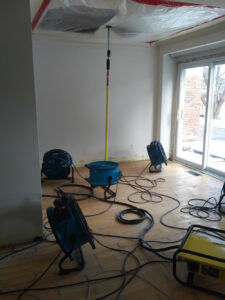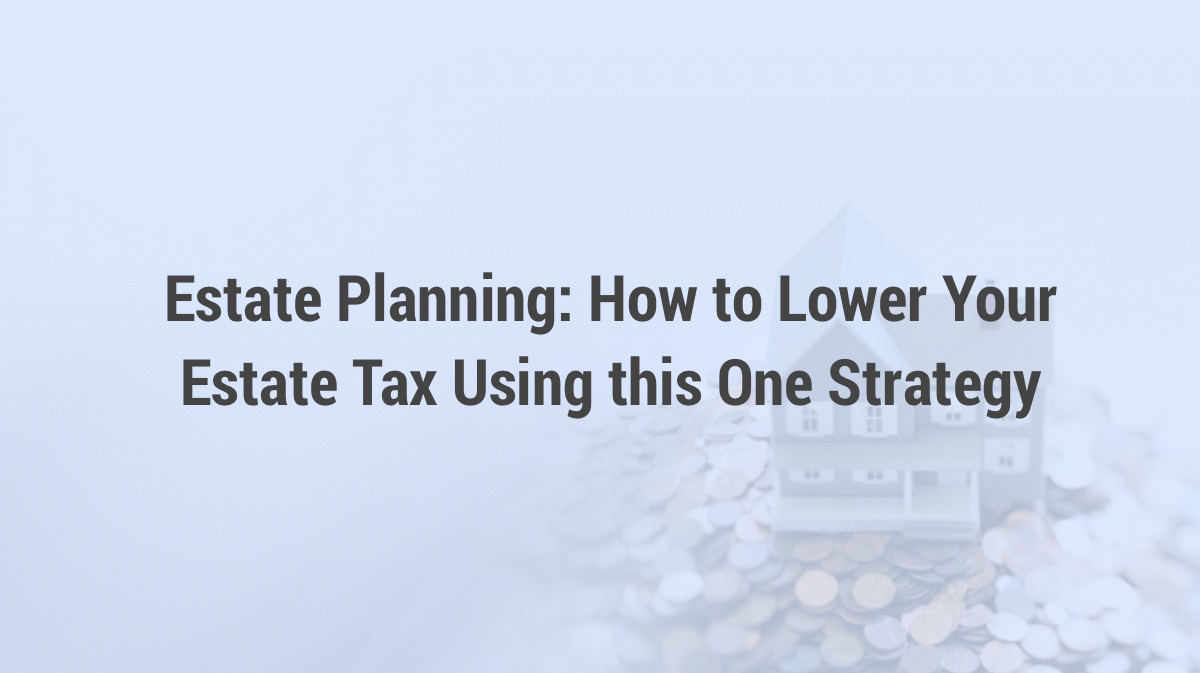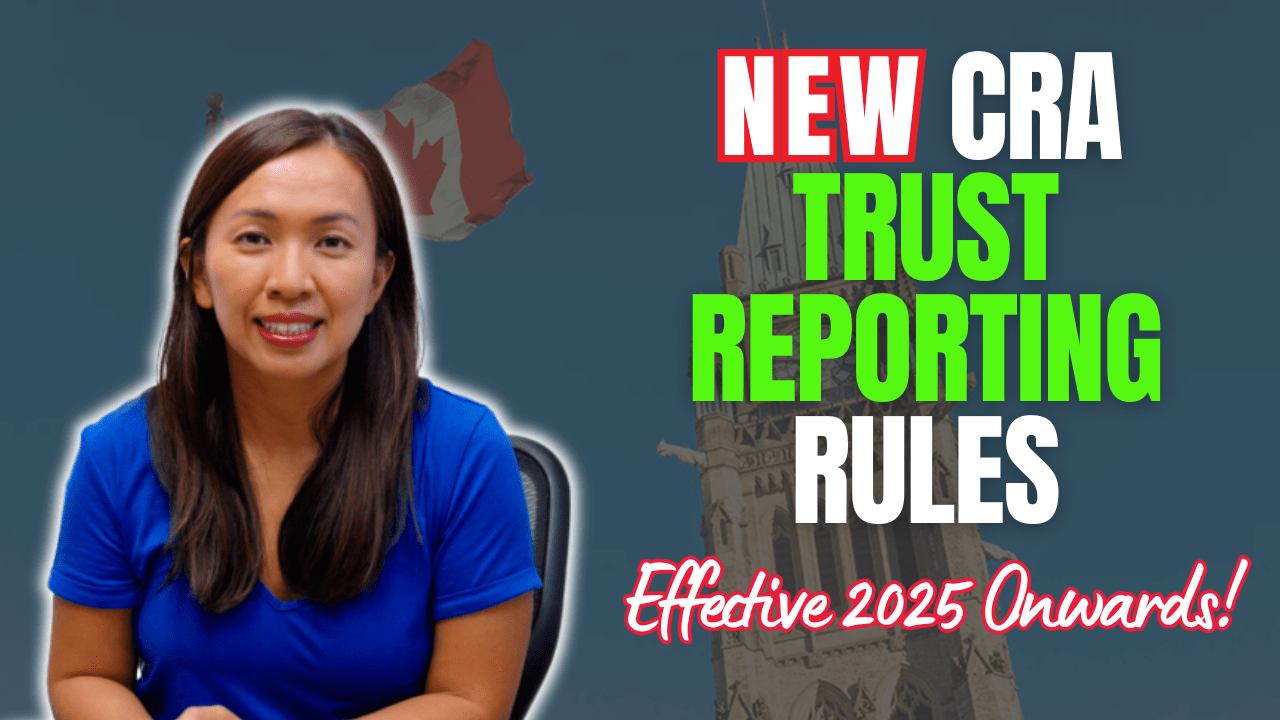
Happy 2017!
I have had quite a dramatic end to 2016.
As a real estate investor, it’s often considered the worst nightmare that you find out your rental property got flooded in between the holidays.
That’s exactly what happened to me and my family.
We walked into my mom’s house on Dec 28 to find out that a second floor pipe had burst, caused by the failure of the temperature control connected to the furnace.
The rest of the house, main floor & basement, was not pretty.
“Not pretty” is probably an understatement.
The property was renovated from top to bottom, waiting for the new tenants to move in shortly into the New Year.
This will no longer be the case.

The damage was serious. At one point, someone threw out a number for repair as high as 6 figures.
The damage was so serious that I couldn’t fall asleep that night.
We immediately hired a restoration and construction company to remediate the problem. I was busy dealing with the contractor, the restoration company, insurance company and my mom, who doesn’t reside in Canada.
Today, 5 days after we discovered the damage, the house is now mostly dry.
It doesn’t help that the insurance company did not confirm whether the damage will be covered or not. We are still waiting for an answer from them.
When we discovered the flood, I was in the middle of telling my best friend how she should invest in real estate to build her long term wealth and retirement fund.
She’s now probably never going to go into real estate because of what she saw at my mom’s house. 🙁
I personally applied a principal I’ve learned from the classic book How to Stop Worrying and Start Living by Dale Carnegie.
I ran through the worst scenario – my mom would be out of pocket by 6 figures and insurance would not cover it.
I did the simple math. The house is worth a lot of money in today’s value. We spend the 6 figures to restore and renovate it.
The absolute worst case scenario is that insurance doesn’t cover it and we will have to sell it.
As bad a condition as the house was in, the absolute worst case scenario is still not the end of the day. I can live with it. I’m sure my mom can live with it too.
Both of us calmed down and accepted it.
Looking for the silver lining from the whole situation, I am so grateful to have a supportive group of people helping me out. And we discovered the situation early enough that there was no mould forming in the house.
I hope the start of your New Year is a bit better than mine! 😉
Now, on to this week’s topic. Estate planning – Episode 2!
In my previous blog post, I detailed what the tax impactions are at death when a real estate investor has not done any estate planning.
It can cost you millions of dollars to settle the final tax bill.
There are a couple of ways to minimize or defer some of the tax bill.
One of the strategies that real estate investors use is to give away their real estate portfolio to their next of kin or anyone that they prefer to leave their assets to during their life time.
One of the most common scenarios is that parents would like to pass their fully paid off rental portfolio to their children and grandchildren.
What the parents can do is to ‘gift’ away their portfolio over time, property by property, in different years, during their lifetime.
At the time when the transfers happen, the parents are deemed by Income Tax Act to dispose the rental property at fair market value. The parents report the disposal and pay the tax liability.
When the parents pass away, the properties are owned by the next generation. It minimizes the tax at the time of death.
Advantage
- Save on probate tax Probate tax is calculated based on the size of asset at the time of death.When the properties are gifted away during a life time, the taxpayers no longer own the properties and hence lowers the amount of probate.
- Limit the amount of real estate tax As mentioned above, the parents could have purchased the property for $300,000. They can gift away the property when it is worth $500,000. They then will have to pay tax on $200,000 capital gain at the time of the transfer.When the parents pass away years later, the property can be worth $800,000. The incremental gain on the property of $300,000 ($800K – $500K) will not be taxable until the next generation decides to sell the property.
The parents’ estate is no longer responsible for the tax on this incremental gain of $300K.
- Next generation does not need to bear tax liability at the time of death If the parents don’t gift away the assets during their life time, a deemed disposition occurs when the second spouse passes away.The parents’ estate is responsible for the tax liability. In our example, when the parents pass away, the house is worth $800K and they purchased the property for only $300K.
The estate is responsible to pay tax on the $500K cumulative gain. This can be as high as $125K based on today’s highest tax rate and capital gain inclusion rate.
Someone has to come up with the money to foot the bill.
If the estate does not have enough cash or a life insurance policy available, the children may have to come up with the money on their own.
Worse yet, they may have to liquidate the house to pay for the tax liability.
But if the parents decide to gift away the portfolio over time during their life time, the children don’t need to worry about this huge liability at the end.
Disadvantage
- Real estate investor bears all the tax liability at the time of the gift One downside of this strategy is that you are now responsible for the tax liability.When you gift the property to your children, a deemed disposition occurs and you now have to pay the tax on the $200K occurred gain on your property.
There’s a change of ownership, from you to your children. But there’s no real cash flow coming in to you (unless your children are buying the property from you).
So you, as the parents, will have to come up with the money to pay CRA.
- Loss of control and income stream over the rental property As fantastic as this strategy may sound, you, as the parents, WILL lose control over the rental property legally.Your children are now the official owners of the properties and they may decide not to give the net rental back to you.
If your plans are to retire on your rental income and you don’t trust your children completely, this may not be the right strategy for you!
- Your children may pay more tax in the future This is a tax deferral strategy. You dispose your assets before you pass away, hence lowering your own tax bill overall.Someone else is getting the asset at the fair market value of disposal. That someone else is whoever you are gifting the properties to.
If your children are doing extremely well in their lives, they may be already in the highest tax bracket.
Receiving the rental income and assets in their own name probably will result in higher income taxes.
Essentially you are pushing the tax liability to be borne by the next generation.
- Potential family conflicts can arise As much as we love real estate, many people do not want to have anything to do with it.Leaving unwanted assets may cause conflicts within the family.
Also, few properties have the same amount of value. When you choose to gift one child one property over another, another child may get something lesser of value in return.
This can create conflicts among siblings.
Careful planning must be taken into consideration when this strategy is implemented.
There are many estate planning strategies you can choose.
A variation of this strategy is to sell off your portfolio over time to third parties and leave cash, instead of property, to your preferred beneficiaries.
Gifting your assets over time can be a great strategy, depending on your personal situation.
Consideration should be given to the advantage and disadvantage mentioned above before implementation.
I will continue to discuss another strategy available to minimize the estate tax in the future. Stay tuned!
Hope you have a great start of 2017.
Until next time, happy Canadian Real Estate Investing.
Cherry Chan, CPA, CA
Your Real Estate Accountant





